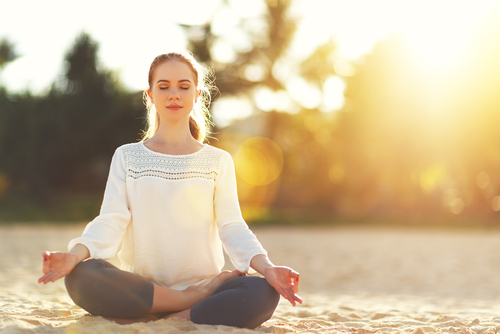Prayer, Meditation, and the Brain

Step eleven of the twelve steps of Alcoholics Anonymous reads, Sought through prayer and meditation to improve our conscious contact with God, as we understood Him, praying only for knowledge of His will for us and the power to carry that out.
Alcoholics Anonymous
, also called The Big Book writes, Step Eleven suggests prayer and meditation. We shouldn't be shy on this matter of prayer. Better men than we are using it constantly. It works, if we have the proper attitude and work at it. The book proceeds to instruct the reader on various ways from morning until night to engage in this two-way communication channel with the Higher Power of one's understanding.
Alcoholics Anonymous
was ahead of its time when it was first published in the late 1930s. Hardly any research or expertise existed on the disease of alcoholism, its effects on people, and the proper ways to recover from it. The information provided in the book was landmark and all of it was based on the personal experiences of alcoholics, the doctors they worked with, as well as the spiritual journeys each of them had taken. Today, we understand that much of what is suggested in The Big Book has valid, legitimate scientific standing. For example, prayer and meditation.
Better
, a blog of
NBCNews.com
, talks with Dr. David Spiegel of the Stanford University School of Medicine, exploring the various effects the act of prayer and meditation have on the brain.
"Praying involves the deeper parts of the brain, the doctor explains. The medial prefrontal cortex and the posterior cingulate cortex — the mid-front and back portions," all of which can be observed through magnetic image resonance (MRI). According to Dr. Spiegel, these specific parts of the brain help with self-reflection and self-soothing. Interestingly, the doctor notes that at the same time these parts of the brain are activated, other parts of the brain, which create the initiative to take action, are inactivated. The article notes, It's an interesting correlation that Spiegel says could play a role in why prayer helps people struggling with addictive urges. A correlation that the authors of
Alcoholics Anonymous
also noted.
As we go throughout the day we pause, when agitated or doubtful, and ask for the right thought or action, the book reads. We are then in much less danger of excitement, fear, anger, worry, self-pity, or foolish decisions. Those foolish decisions are, in part, caused by the hyper-activation of the limbic system, according to the article. Going into a survival response mode of fight, flight, or freeze, the prefrontal cortex is temporarily paralyzed, which shuts down the ability to make informed decisions, which leads to self-destruction and self-sabotage through poor decision making.
Our children who are being treated for drug and alcohol addiction learn to pause, think, pray about it, and reflect before making an impulsive decision. Just taking a minute to breathe, and set their minds intentionally toward peaceful calmness, as well as receiving direction from a source other than themselves, helps children in recovery make better decisions. Ultimately, prayer and meditation act as two of many tactics that serve as a defense against the first drink, the one that never guarantees a return to sobriety.
Stonewater Adolescent Recovery Center offers a foundation building, life cleansing program to young men who are in need of recovery from drug and alcohol addiction. Call us today for information: 662-598-4214

.jpg)

